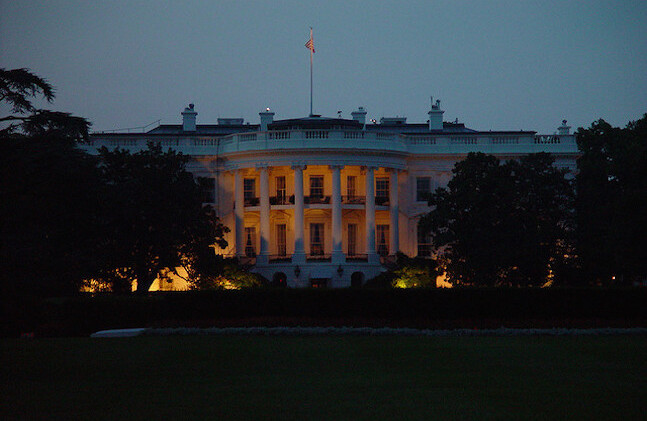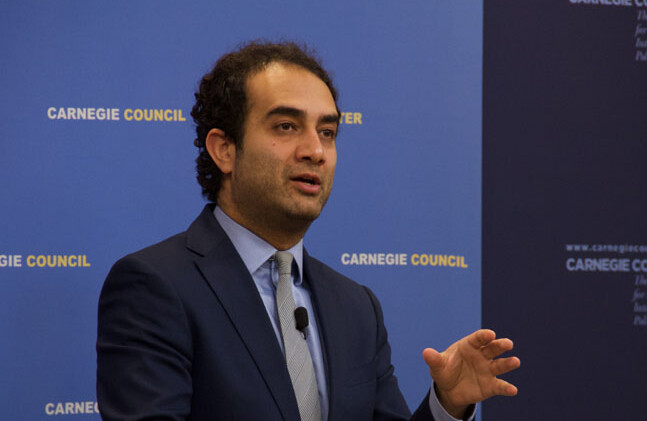Framing ethical perspectives
Multilateralism refers to a group of nations working together for a common goal. It is at the heart of international relations as nation-states form alliances with like-minded countries to take on global issues, such as climate, emerging technology, inequality, and collective security. Carnegie Council sees multilateralism as essential to generating solutions to global problems and a critical component of an ethical present and future.
Featured Multilateralism Resources
Inclusivity, AI & climate governance, and more
FEB 27, 2024 • Video
A Carnegie Council Conversation with the UK Home Secretary
MAR 28, 2024 • Video
Unlocking Cooperation: The Global South and Global North
In the inaugural panel of the "Unlocking Cooperation" series, Ramu Damodaran leads a discussion on forging a path forward for Global South/North collaboration.
OCT 18, 2023 • Video
Unlocking Cooperation: A Global Ethics Day Special Event
In this keynote event for Global Ethics Day 2023, Carnegie Council President Joel Rosenthal led a conversation on the psychology behind cooperation; ways that states, institutions, ...
Subscribe to the Carnegie Ethics Newsletter for more on ethics and international affairs
Related Initiatives
Model International Mobility Convention
The primary goal of the Model International Mobility Convention (MIMC) is to formulate new rules for migration and asylum that can benefit both migrants and refugees as well as their states of origin, transit, and destination.
Carnegie Ethics Accelerator
The Carnegie Ethics Accelerator is a new kind of incubator designed to empower ethics in the face of swiftly evolving challenges in technology and public policies.
Explore Our Multilateralism Resources

DEC 21, 2016 • Podcast
Women's Rights are Human Rights: Global Challenges to Reproductive Health
How will the Trump presidency affect women's rights, not only in the U.S. but around the world? Will the Sustainable Development Goals really succeed ...

DEC 15, 2016 • Podcast
Risks to U.S.-China Relations Under Trump
Where are U.S.-China relations right now and where are they headed? "I don't think we should give up hope in some way forward. ...

DEC 12, 2016 • Podcast
Foreign Fighters, Homegrown Terrorism, and the Prevention of Violent Extremism
What are the driving forces behind the increase in homegrown terrorism and what can be done to stop it? Ali Soufan and Seamus Hughes, veterans ...

DEC 12, 2016 • Podcast
The Ethics and Governance of Geoengineering
The definition of geoengineering is "large-scale human intervention with the Earth in order to change the climate," says Janos Pasztor, and to manage the world's ...

NOV 28, 2016 • Article
Donald Trump. . . . . Commander-in-Chief
Donald Trump is now president-elect. Despite the bitter opposition that occurred throughout the campaign, all Americans should want him to be successful. This is particularly ...
NOV 18, 2016 • Podcast
A Conversation on Climate Change & Forced Displacement with David Sussman
Conflict and war are often talked about as main drivers of forced displacement, but researcher David Sussman also points to climate change and consumerism as ...

NOV 14, 2016 • Podcast
Perceptions of Muslims and Islam in the U.S. in Light of Trump's Victory
What will Trump's victory mean for American Muslims? How have attitudes towards them changed over the years? (The answer may surprise you.) How does this ...

NOV 4, 2016 • Podcast
Islamic Exceptionalism: How the Struggle over Islam Is Reshaping the World
Many liberals hope that Islam will follow the same trajectory as Christianity and the West: a reformation and eventually secularization. But we should beware of ...

OCT 25, 2016 • Podcast
Powerplay: The Origins of the American Alliance System in Asia
Why is there no NATO for Asia? After World War II, why did the United States opt for bilateral relationships with countries like Japan and ...

OCT 21, 2016 • Podcast
China, Japan, and America: Three Tigers on One Mountain?
"I don't think you can write about China and Japan without writing also about the United States," says journalist Richard McGregor. How has this complicated ...




